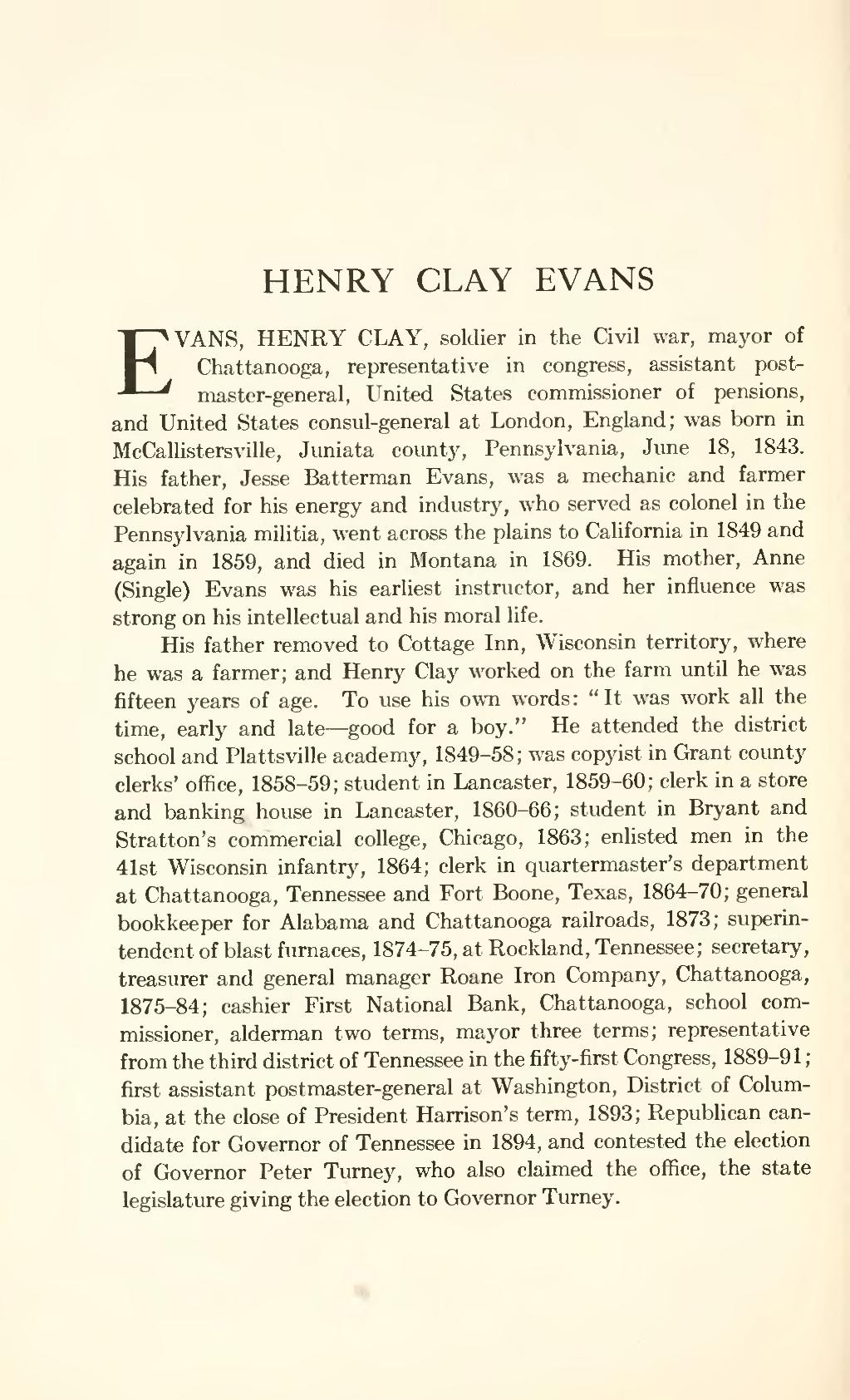HENRY CLAY EVANS
EVANS, HENRY CLAY, soldier in the Civil war, mayor of Chattanooga, representative in congress, assistant postmaster-general, United States commissioner of pensions, and United States consul-general at London, England; was born in McCallistersville, Juniata county, Pennsylvania, June 18, 1843. His father, Jesse Batterman Evans, was a mechanic and farmer celebrated for his energy and industry, who served as colonel in the Pennsylvania militia, went across the plains to California in 1849 and again in 1859, and died in Montana in 1869. His mother, Anne (Single) Evans was his earliest instructor, and her influence was strong on his intellectual and his moral life.
His father removed to Cottage Inn, Wisconsin territory, where he was a farmer; and Henry Clay worked on the farm until he was fifteen years of age. To use his own words: "It was work all the time, early and late — good for a boy." He attended the district school and Plattsville academy, 1849-58; was copyist in Grant county clerks' office, 1858-59; student in Lancaster, 1859-60; clerk in a store
and banking house in Lancaster, 1860-66; student in Bryant and Stratton's commercial college, Chicago, 1863; enlisted men in the 41st Wisconsin infantry, 1864; clerk in quartermaster's department at Chattanooga, Tennessee and Fort Boone, Texas, 1864-70; general bookkeeper for Alabama and Chattanooga railroads, 1873; superintendent of blast furnaces, 1874-75, at Rockland, Tennessee; secretary, treasurer and general manager Roane Iron Company, Chattanooga, 1875-84; cashier First National Bank, Chattanooga, school commissioner, alderman two terms, mayor three terms; representative from the third district of Tennessee in the fifty-first Congress, 1889-91 ; first assistant postmaster-general at Washington, District of Columbia, at the close of President Harrison's term, 1893; Republican candidate for Governor of Tennessee in 1894, and contested the election of Governor Peter Turney, who also claimed the office, the state legislature giving the election to Governor Turney.
